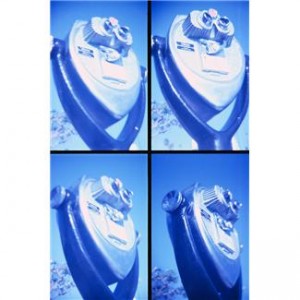What employers seek in public history graduates (Part 5): An online discussion in preparation for NCPH 2013
01 April 2013 – Trina Nelson Thomas
 As senior director of the five public program departments at the Indiana Historical Society I regularly work with interns and faculty, and I regularly employ graduates from history programs. I ask several specific questions when am sifting through applicants:
As senior director of the five public program departments at the Indiana Historical Society I regularly work with interns and faculty, and I regularly employ graduates from history programs. I ask several specific questions when am sifting through applicants:
- Can the student or applicant do research? Gritty, up-to-your-elbows-in-primary-sources research as well as careful, critical secondary source research? What can they tell me about the research process? Can they break the information down into bite size chunks for others? At a minimum, I expect first year graduate interns to be able to do quality research. In a public history setting, we don’t have time to explain the basic process of “doing history.” Undergraduate and graduate history programs are the place to assess and hone those skills. We need folks who may need to familiarize themselves with our particular topics or collections, but who can hit the ground running.
- Can the student or applicant think and communicate clearly? Do they make a case for themselves by explaining how their academic education and related papers and projects have prepared them to work at our institution? What other experiences–summer jobs, volunteer gigs, and the like–illustrate that they can think and communicate? In person are they comfortable talking about their work? Are they passionate about history? Are they passionate about sharing history with a larger audience? And if so, what formats are they most comfortable sharing that information in and to what audiences? Someone may be an excellent communicator in a formal paper or classroom presentation, but not be able to convey historical information through a variety of means–to their grandma and her friends, through an informal presentation, via an exhibition or web site. More important than demonstrable skills in informal communication, however, I look for people who are interested in learning how best to convey historical content in a variety of ways.
- Can the student/applicant work with other people in a professional and respectful manner? Does the student or applicant think s/he is the smartest person in the room? Are they able to keep this to themselves during interviews and meetings? Don’t get me wrong–I strive to be surrounded by people who are smarter than me and can help bring other viewpoints to the table. However, there is a fine art to successfully joining a new team as an intern or co-worker. Over the years we’ve had a few folks who were so focused on impressing people with their knowledge or ideas, they forgot to think about the best way to integrate into new surroundings in a meaningful way. The key to success in any job is relationship building and figuring out how to work with others towards an agreed upon goal. Did they manage a project with difficult people and come to consensus and meet the goal? Can they describe some practical tips for getting the best out of a group project or joining a team? What did success look like? Do they value working and playing well with others?
I suspect for some readers, this post may seem a tad basic. However, I am continually surprised by how often truly smart and engaging people struggle to communicate and work collaboratively in a professional setting. It isn’t about always about getting your viewpoint across or having the last word on the project. It’s about working towards a common goal while maintaining historical integrity and pushing yourself and your colleagues to do their best work. I’d like to encourage you to seek opportunities outside of the classroom to practice and enhance your skills. If you haven’t already, start building a lifelong network of colleagues through student associations, professional associations and service to the field. Professional development must be an ongoing effort and a priority for both students and working professionals.
~Trina Nelson Thomas has been Senior Director, Public Programs at the Indiana Historical Society since 1998. She coordinates five departments: local history services, education and community engagement, exhibition research and development, exhibition design and production and interpretation. During her 20 years in the field, her work has focused on interpretive planning and programming, community collaborations, strategic planning and evaluation.




2 comments